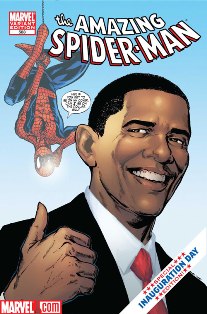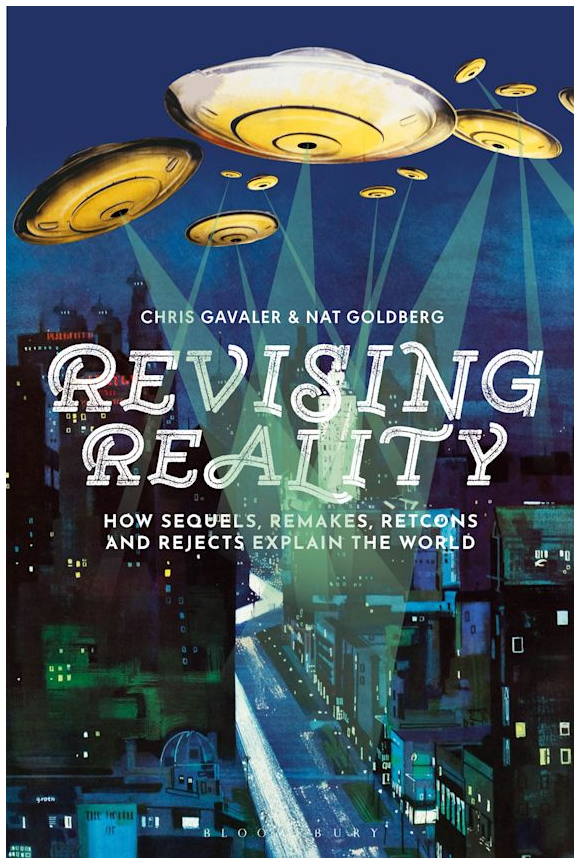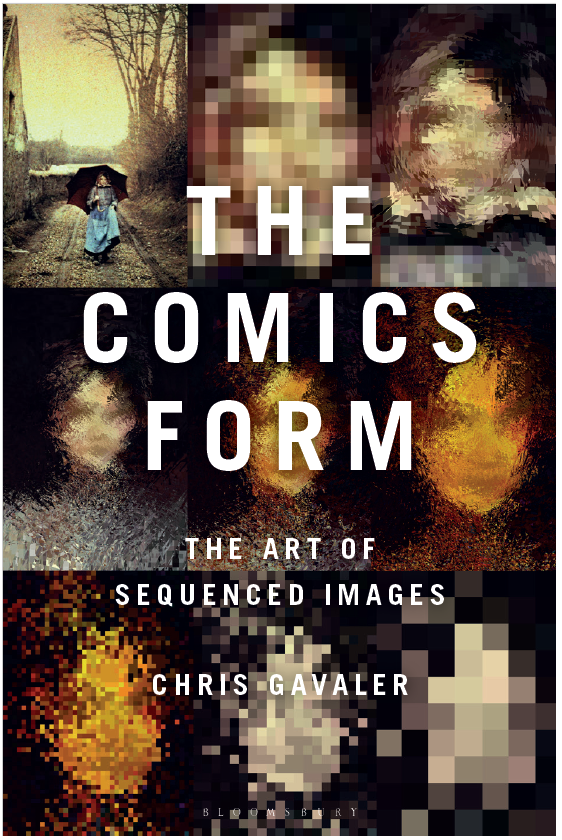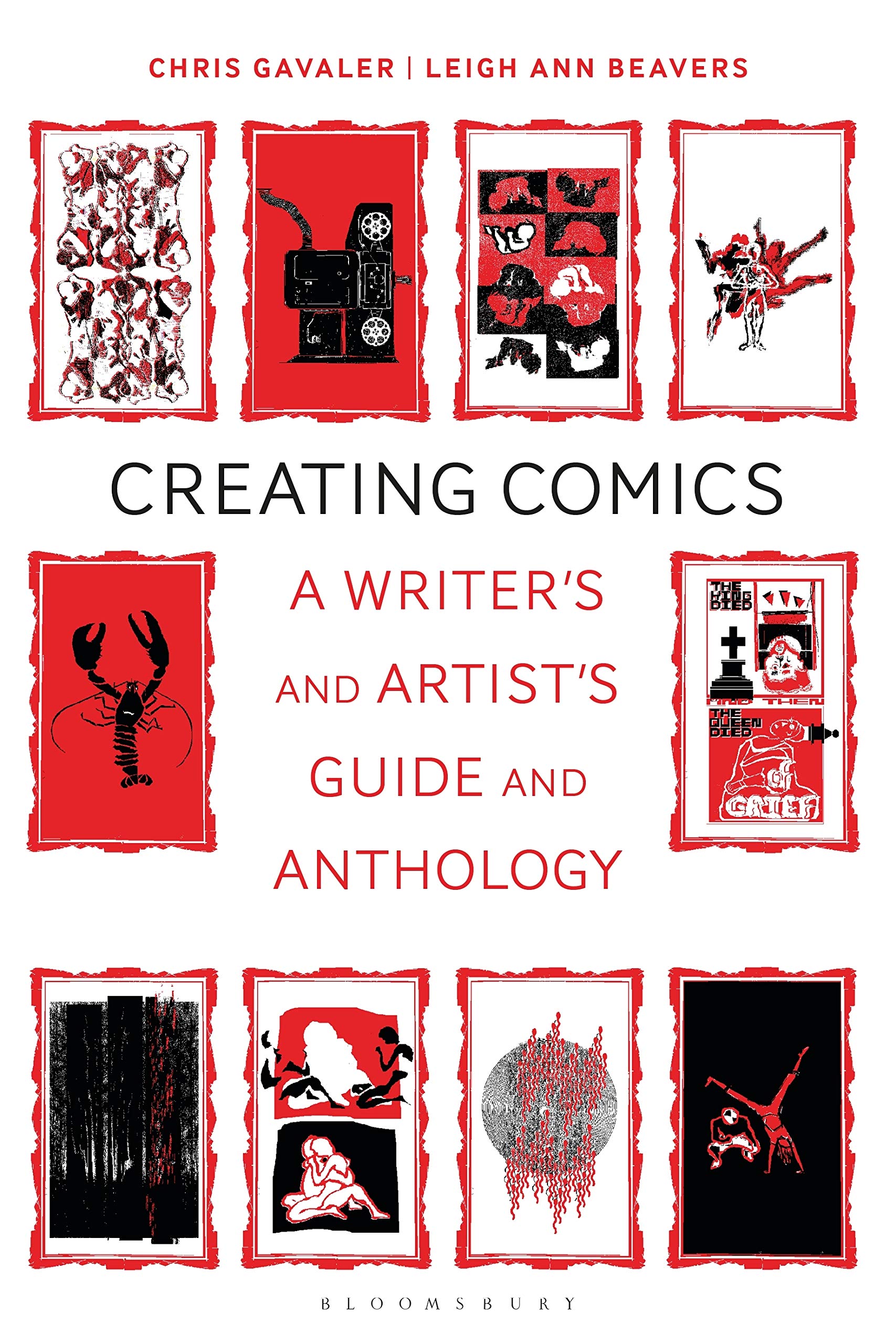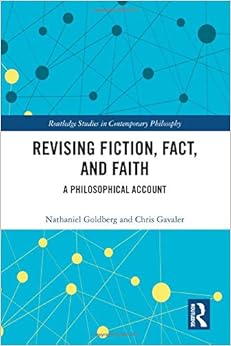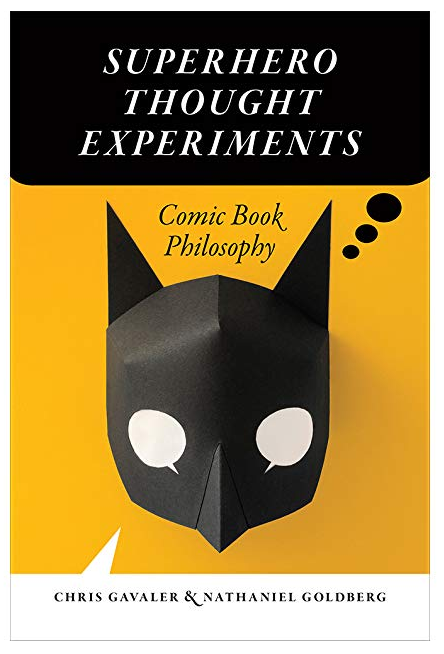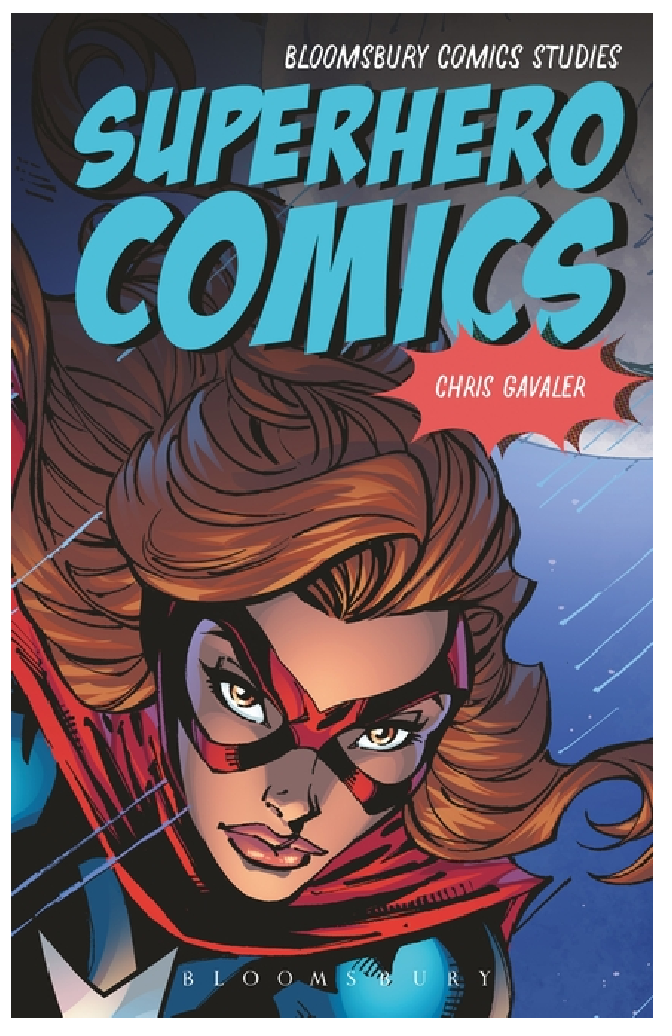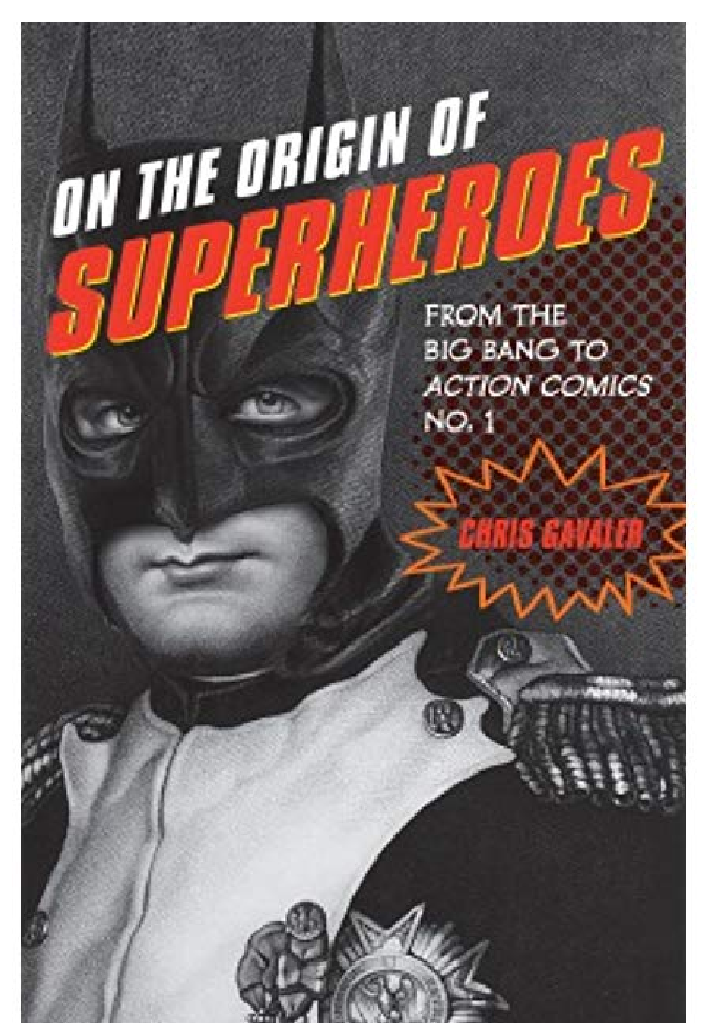Monthly Archives: August 2015
31/08/15 Superhero Screenplay, Act 1
New York Times reviewer A. O. Scott declared in 2012 that the superhero movie genre, “though it is still in a period of commercial ascendancy, has also entered a phase of imaginative decadence.” According to Scott, it’s been all downhill since Heath Ledger won the 2008 Best Supporting Actor for the Joker.
I think 2008 was the tipping point too, but not because of The Dark Knight. I miss movies like Peter Berg’s Hancock. Not because Hancock is better than The Dark Knight–it’s not–but because Hancock marks the moment Hollywood stopped experimenting with original superheroes.
M. Night’s Shyamalan’s 2000 Unbreakable is another good, imperfect movie–one made better in retrospect because of its ability to experiment with tropes by creating its own characters. 2008 also marks the start of Marvel’s ascendancy with Iron Man, and so the financial incentive to duplicate instead of innovate. The experimental phase was over.
So I am returning to the year 2008 of an alternate Earth in which an alternate Hollywood did not embrace the Marvel and DC pantheons, but instead explored those formulas with new characters who mirrored and warped the Avengers and Justice League in new directions. This screenplay isn’t necessarily better than those coming out of Hollywood these days (except for the Fantastic Four, it’s definitely better than the Fantastic Four), but at least it’s not identical to them.
Here’s the first act:

THE DAILY STAR
LOGLINE: Superheroes must escape a government prison that’s brainwashed them into thinking they’re only their mild-mannered alter egos.
INT. BLACK SCREEN.
JOHNNIE (V.O.)
Okay, let’s get this started.
INT. LOLA’S BEDROOM — MORNING.
Close-up of LOLA’s face, eyes closed, head on pillow. A pair of hands opens her eyes and shines a medical flashlight into each. Another pair of hands is touching up her make-up. Voices continue as though through headphones from a remote location.
TECHNICIAN ONE (V.O.)
Initiating reboot.
TECHNICIAN TWO (V.0.)
Chip interface engaged.
JOHNNIE (V.O.)
Clear the room.
TECHNICIAN TWO (V.0.)
All levels clean and steady.
JOHNNIE (V.O.)
I said clear the room.
All hands withdraw.
TECHNICIAN THREE (V.O.)
Active in three . . . two . . . one.
LOLA opens her eyes.
TECHNICIAN ONE (V.0.)
We are online.
LOLA sits up in bed and blinks. She’s expressionless, perhaps a little uncertain as she takes in her perfectly decorated and antiseptically neat bedroom. Her nightgown is blandly conservative. The alarm clock on her bedside table starts beeping as it flips to 7:00. She turns to look at it but doesn’t turn it off. A skirt suit is draped across a chair ready to wear. She touches it and then withdraws her hand. A row of star-shaped, newspaper writing awards stand on her desk. She looks at them and blinks expressionlessly and then touches her temple as though registering a vague pain.
TECHNICIAN THREE (V.O.)
Ah . . . do we have a problem?
JOHNNIE (V.O.)
Hang on.
TECHNICIAN TWO (V.O.)
Maybe yesterday’s containment dose was too—
JOHNNIE (V.O.)
I said wait.
Finally, LOLA shakes off her daze, clicks the alarm off, and steps off screen to start her day.
JOHNNIE (V.O.)
Okay. We’re rolling.
INT. SURVEILLANCE ROOM — DAY.
Pan across a row surveillance screens as technicians chatter. We see LOLA stepping into her shower, and then five other subjects at increasingly later points in their morning routines: dressing, eating breakfast, kissing a wife goodbye, hailing a taxi on the street.
The fifth, however, is CARL CLARKSON, who remains in bed. The camera pauses on his sleeping face, which twitches as if he’s lost in a disturbing dream.
JOHNNIE (V.O.)
And how’s our big boy doing?
TECHNICIAN TWO (V.O.)
Sleeping like a baby.
TECHNICIAN THREE (V.O.)
Scary, big-ass baby with artificially suppressed circadian cycles.
TECHNICIAN ONE (V.O.)
Ready, sir?
JOHNNIE (V.O.)
Yeah. Hit him.
INT. CARL’S BEDROOM – DAY.
CARL jerks awake, disoriented. His childish pajamas are mismatched, half-inside out, and a size too large and/or too small. The bedroom is an equally flamboyant mess. He grabs the alarm clock on his bedside table, knocking his glasses and a newspaper to the floor in the process.
CARL
I forgot to set it again?!
He fumbles out of bed, chasing his glasses across the fallen newspaper. Camera follows his feet as he steps on the newspaper and stubs his toe on an inconveniently positioned chair. He puts on his glasses and makes his way to the bathroom, cursing “Darn it! Darn it!” Zoom into the front page of The Daily Star and a photograph of OMEGA MAN in full superhero costume. Zoom closer to reveal that OMEGA MAN’s face is CARL’s, only grinning and beaming with confidence.
CREDITS OVER A SEQUENCE OF NEWSPAPER PHOTOGRAPHS.
Documentary-style pan over Daily Star photos of THE POWER LEAGUE, some posed, some in action. OMAGA MAN and AMAZONIA are most prominent, with SHAPESHIFTER, SPEEDSTER, CYBORG and POWER RING. The characters’ garish unitards look absurd, but their actions appear nonetheless superhuman. The last headline reads: “Power League Thwarts Dr. Megastein Again.” There’s a photo of AMAZONIA punching a supervillian. The byline includes a small image of reporter LOLA LITTLE in perfect make-up and her hair in a confining bun.
INT. BACK SEAT OF TAXI — DAY.
The newspaper is held by a pair of well-manicured hands, which fold the paper to reveal LOLA looking identical to her photo. Setting the paper aside, she glances outside at detour signs and construction crews working around bomb-like craters in the street.
LOLA
What’s all the damage from?
TAXI DRIVER
You mean the construction? Didn’t you hear? They’re extending the subway line. It’s always something, ain’t it?
LOLA nods and rubs her temple as though just aware of a forming headache.
EXT. STREET — DAY.
LOLA steps out of the stopped taxi and pays the driver through his window. She’s carrying her briefcase and two newspapers.
LOLA
Keep the change, Max.
TAXI DRIVER
Thank you, Miss Little! You have a good day now!
Pan up the height of the 1930s era skyscraper to the giant Daily Star star-logo mounted on the roof, identical to Lola’s star-shaped awards. The building, like the streets, appears to have sustained recent damage.
INT. DAILY STAR LOBBY — DAY.
LOLA strolls past fresh-looking plywood blocking ruined walls; only a sign, “The Marketplace,” indicates that a café previously filled the space. A JANITOR is mopping the floor by the elevators.
LOLA
Morning, Charlie. What happened in here?
JANITOR
Renovations. Always got to be changing something, don’t they, Miss Little?
LOLA nods, frowning at other signs of damage in the lobby, but keeps moving to the waiting elevator. JANITOR glances back at her before speaking into a microphone in his collar.
JANITOR
Gamma at final checkpoint.
EXT. STREET — DAY.
Cab pulls up, and CARL rushes out. His tie is crooked and he’s fighting back a yawn.
DRIVER 2
Hey buddy, you gotta pay me!
CARL fumbles with his wallet and briefcase, almost dropping both.
CARL
Oh, gosh, I’m so sorry, here, it’s a, how much, let me, um . . .
The DRIVER takes a bill.
DRIVER
Thanks for the tip.
CARL
Oh, actually, if you could give me . . .
The taxi pulls away.
INT. ELEVATOR — DAY.
LOLA enters the elevator, and the doors begin to close as she sees CARL running toward her.
CARL
Lola! Hold the door please! Lola!
She grimaces, and her hand shoots for the “close” button, but then freezes. At the last moment, she presses “hold” instead. CARL steps inside with a look of surprise.
CARL
Well, thank you, Lola.
LOLA
No problem, Carl. We’re partners after all. Need to watch each other’s back.
CARL
Partners. Wow. I always sort of got the sense you saw me as a kind of, I don’t know. Competitor? Not, I mean, I’m obviously not half the reporter you are, but —
He interrupts himself with an achingly wide yawn.
CARL
Oh my, excuse me. I can never seem to get a good night’s sleep.
LOLA begins to reflexively agree, but then stops, surprised.
LOLA
Actually. I slept great last night. Best sleep I’ve had in years.
(a realization)
I feel like a new person.
INT. DAILY STAR NEWSROOM — DAY.
Elevators doors open to an expansive newspaper newsroom, reminiscent of the 1970s. LOLA almost steps out but then freezes. She blinks out at the room. CARL stares at her, confused that she’s not jumping into her day.
CARL
After you, Lola?
LOLA steps out, gazing around uncertainly. MR. BLACK, Editor-in-Chief, steps between LOLA and CARL.
BLACK
Afraid you two were trying to take the day off.
CARL
Of course not, Mr. Black, we would never –
BLACK
What’s the status on the Omega Man feature?
LOLA is in a daze.
BLACK
Lola?
LOLA
What? Oh. Sorry, Chief. Final edits. On your desk by noon.
BLACK
And the Governor’s interview?
LOLA
His people are whining for an advance look, but I said . . .
BLACK
You said . . . ? No way, right?
LOLA
Right. Of course, I did. Wasn’t part of the . . .
BLACK
Deal.
LOLA
Deal.
BLACK looks at her nervously, but moves on to CARL.
BLACK
How about you, Carl? You ever going to finish that global warming thing?
CARL
Actually, my source is getting cold feet, so I may have to call another expert, you know, to make sure the data is absolutely correct?
BLACK
Playing it safe, Carl. That’s what we like about you.
BLACK pats CARL on the back and watches him walk toward his desk. BLACK surreptitiously inserts a Bluetooh in his ear and speaks under his breath.
BLACK
Omega on script, but Gamma barely functional. Thought you said she sustained no damage yesterday?
INT. SURVEILLANCE ROOM — DAY.
A metallic, high tech room with a wall of surveillance screens and TECHNICIANS in the background. Most of the screens now show angles of the newsroom. JOHNNIE, a twenty-something incongruously dressed in a bowtie and suspenders, speaks into a Bluetooth while snapping his fingers at one of the TECHNICIANS.
JOHNNIE
She checked out, but they’re running another diagnostic right now.
TECHNICIANS jump to action at the implied command. Move in closer to the screen in front of JOHNNIE to show a black and white image of BLACK standing in the newsroom. He glances up at the ceiling camera.
BLACK
Good. Now get out here with those donuts.
BLACK pockets Bluetooth.
INT. NEWSROOM, CARL’S WORKAREA – DAY.
CARL stumbles over a trashcan as he reaches his desk; he’s watching LOLA intently across the newsroom. CY, another reporter, is seated at the adjacent desk, fighting with a 90s era PC.
CY
Why won’t this thing work? I hate these damn machines! Hate them!
CARL
Why don’t you call IT? I swear you do this every . . .
CARL watches LOLA rubbing her forehead in pain as she arrives at her desk.
CY
You say something, Carl?
CARL
Sorry, Cy. You should just ignore me. I swear I’m not myself today.
CY
Yeah, you look a little off. I’d tell you to go home, but . . .
(gesturing at BLACK entering the conference room)
when was the last time the chief gave any of us a day off?
CARL tries to echo Cy’s good-natured laugh as CY stands and heads toward the conference room with his yellow pad.
INT. NEWSROOM, LOLA’S WORKAREA – DAY.
LOLA sits at her desk as the extravagantly dressed fashion editor, CAMELLIA, strolls by. Her pearl CHOKER stands out from the rest of her outfit. LOLA is too distracted to notice her.
CAMELLIA
Morning, Lola.
LOLA
Oh, Camellia. Hi. Good morning. Nice out . . .
Something catches LOLA’s eye, and CAMELLIA flinches, afraid her appearance is imperfect.
CAMELLIA
What’s the matter?
LOLA
Is that the same choker you wore yesterday?
CAMELLIA
This old thing? I just threw it on today for a lark. Classy, don’t you think? Some things never go out of . . .
She appraises LOLA’s suit and sneers, before sauntering off.
CAMELLIA
Style.
LOLA looks around her desk, still dazed. ROGER is seated at the desk adjacent to her; he’s rifling through drawers frantically searching for something.
ROGER
Where is it? Where the hell is it?
LOLA
You lose something, Roger?
ROGER
My ring. It was right here a second ago.
LOLA
Don’t worry. I’m sure it’s . . .
LOLA looks around the newsroom with an anxious expression.
LOLA
. . . somewhere.
JOHNNIE, now acting the part of a boyish intern, jogs past carrying a donut box.
JOHNNIE
Staff meeting in the conference room, one minute!
LOLA, jarred back into action, grabs one of her two newspapers and starts to follow him, but stops when she notices JANIE, young sports reporter dressed in a running suit, slumped at her desk. Everyone else is moving into the conference room.
LOLA
You okay, Janie?
JANIE lifts her head, bleary-eyed.
JANIE
I just can’t seem to get myself moving today.
LOLA
Here. Let me give you a hand.
LOLA helps her stand and the two hobble toward the conference room together.
INT. CONFERENCE ROOM — DAY.
A long table with a wall of windows looking out at the city, except one of the windows has been recently cracked and is sealed with tape. The walls are decorated with framed Daily Star front pages that feature large photographs of the Power League members. Everybody is taking seats. BLACK notices CARL looking intently at LOLA as she enters with JANIE. BLACK slides the box of donuts at him.
BLACK
Make yourself useful, Carl.
CARL
What, sir? Oh. Right, sorry.
CARL struggles to open the box, his eyes still on LOLA. She sits as JANIE crumples into the last chair. LOLA looks at the cracked window.
LOLA
What happened in here? I swear this town looks like a war zone today.
JOHNNIE
Oh, funny story, Miss Little! Those window cleaner guys were messing around with that elevator thingy when one of the controls –
BLACK grabs the box of donuts from CARL, zips it open, and skids it to the center of the table.
BLACK
Okay, people, listen up, we got a big day here. I need everybody 100% focused.
JOHNNIE
Gosh, Mr. Black, don’t we ever get a day off?
BLACK
If we make this deadline, we can all have a well earned vacation. But first thing first. Camellia, how’s that fashion spread?
CAMELLIA
I need another half-page.
BLACK
No changes.
CAMELLIA
But the photos are so tiny, you can’t see —
BLACK
How many times do we have to go through this? Stay inside your borders.
During BLACK and CAMELLIA’s exchange, CARL notices ROGER neurotically winding a piece of paper around his ring finger.
ROGER
(whispering)
Have you seen my ring, Carl? My wedding ring? I swear I was just wearing it. If my wife finds out I lost it she’s going to kill me.
CARL
I haven’t seen it, Roger. Did you leave it at home?
BLACK
Something you two want to share, Carl? It’s only a newspaper I’m trying to run here. I don’t have to tell you how important this edition is. Cy, the technology insert, ready to print?
CY
It would be if my PC hadn’t crashed. Now I’m going to have to retype the whole —
LOLA
Why is it important?
All look at her in startled silence. CARL’s reaction is particularly acute.
CARL
What did you say, Lola?
LOLA
This edition? We put out a paper every day. What’s so important about today’s?
More stunned silence.
JOHNNIE
Gosh, Miss Little, that’s not a very constructive attitude.
CAMELLIA
Next she’s going to say newspapers are a dying breed or something.
JOHNNIE
It’s like Mr. Clarkson is always saying — what’s that expression of yours, Mr. Clarkson?
CARL
Ah . . . live each day like it’s the only one you have?
JOHNNIE
Now that’s what I call philosophy!
CY
Yeah, you’re quite the philosopher, Carl.
CARL
Oh, I didn’t think that up myself —
BLACK
Lola, update everyone on your Omega Man and governor pieces. I haven’t decided which to lead with. Got an opinion?
LOLA
Neither.
The room is further shocked.
BLACK
And what, go with Carl’s global warning thing?
The others chuckle.
CARL
The front page? I really don’t think something I write belongs on —
LOLA
Omega Man, the governor, that’s yesterday’s news.
BLACK
You got someone better to interview?
LOLA
Yes. Doctor Megastein.
Silence, then the staff breaks into more laughter, except for CARL who forces a smile but is looking at LOLA with increasing interest.
CY
Good one, Lola.
JOHNNIE
The most evil supervillain who’s ever lived.
ROGER
Yeah, ask him about his next plan for world domination so the Power League can get ready for it.
CAMELLIA
Ooo, and I can do a photo spread of his tacky battle suits!
LOLA
I’m serious.
BLACK
And how exactly are you planning to find him to get an interview?
LOLA
Well, he is in custody.
Laughter ends with renewed shocked silence. BLACK is about to speak, but CARL cuts him off.
CARL
How do you know that, Lola?
LOLA
It was in the paper.
CAMELLIA
Ah, we write the paper, darling. I think we would have noticed if —
LOLA unfolds the newspaper she’s been carrying. It’s the New York Times. Photo of damaged streets and buildings. Headline: “Government Meta-ops Subdue Terrorist.” There’s a photo of an explosion on the street outside and people running; some kind of aircraft is visible through the smoke. Another photo is a close-up of the terrorist, Dr. Stein, a middle-aged man with a goatee.
LOLA
Not The Star. The Times.
CY
The what?
CAMELLIA
Oh my god, when did this happen?
ROGER
New York has another newspaper!
CY
“Government Meta-ops Subdue Terrorist.”
CAMELLIA
What’s a meta-op?
CARL picks up the paper.
CARL
Lola, where did you get this?
ROGER
What’s a terrorist?
BLACK grabs the newspaper from CARL and shoves it at JOHNNIE.
BLACK
Ok, people, settle down.
JOHNNIE
I’m just going to go check on the, um . . .
JOHNNIE rushes out of the room with the paper.
BLACK
Lola, after the governor and the Omega Man feature are in print, you can interview Adolf Hitler for all I care. Tomorrow. But today we stay focused on today. So get cracking, people! Let’s go! Let’s go!
JANIE jerks awake.
JANIE
Okay! I’m going! I’m going, I’m . . .
She melts back down as others obediently file out. LOLA is rubbing her forehead. ROGER is crawling around on the floor.
ROGER
Has anyone seen my ring?
INT. BLACK’S OFFICE – DAY.
Large desk with exterior windows behind it and in front of it a wall of interior windows with a wide view of the newsroom. BLACK enters and is about to close the door when CARL appears in the doorway.
CARL
Mr. Black, I don’t want to bother you, but I was thinking about what Lola—
BLACK
So don’t.
CARL
Don’t?
BLACK
Bother me.
CARL
(after a self-deprecating chuckle)
But I was thinking—
BLACK
Don’t do that either. You’re not here to think. You’re here to report.
CARL
I know, I do, but if there are reporters at other newspapers who know so much about—
BLACK
Carl. This is the Daily Star. The best newspaper in the world. You know that, right?
CARL
Yes, of course, but—
BLACK
So do your job.
BLACK closes the door. CARL remains visible behind the glass and the slats of the blinds. BLACK twists the cord. CARL tilts to look in through the next window, finger raised to speak, and BLACK closes those blinds too. He closes all of the blinds until he’s sure he has complete privacy.
INT. PRIVATE BATHROOM – DAY.
BLACK steps into the private bathroom connected to his office. He slides the toilet paper dispenser aside to reveal a secret panel with a scanning pad. When he holds his hand to the pad, a green light blinks and the wall of the bathroom begins to open.
INT. SURVEILLANCE ROOM — DAY.
Lola’s taxi driver is seated with the wall of monitors and TECHNICIANS in the background. JOHNNIE is yelling at him while shaking the New York Times in his face.
JOHNNIE
What do you mean it’s not your fault!
TAXI DRIVER
The damage from the attack, I had to take a different route, so when she stops for her paper like always she must’ve found a second vending machine, a real one.
(pointing at newspaper)
I didn’t even know they still sold these damn things!
JOHNNIE
You didn’t keep eyes on her?
TAXI DRIVER
That’s against protocols. Don’t make her paranoid, that’s what you said.
JOHNNIE
Did I also say contaminate the entire meta-quarantine with rogue information?
JOHNNIE doesn’t notice BLACK entering from an armored door behind him. Through the door is a brief view of BLACK’s bathroom and office.
BLACK
Better than chip malfunction.
JOHNNIE turns.
BLACK
I was afraid we were headed for a full defection scenario.
BLACK turns to the TECHNICIANS.
BLACK
The chip is fine, right?
The monitors show the Daily Star staff in the newsroom. Some are just the black and white surveillance images, but others appear higher tech with heat signatures and LED readouts. They are studying LOLA.
TECHNICIAN ONE
All levels within standard ranges.
TECHNICIAN TWO
Her cognitives are running high though.
TECHNICIAN THREE
But expected given the contagion.
BLACK plucks the Times from JOHNNIE’s hand.
BLACK
Which means the problem disappears after reboot.
And he chucks it into a metal wastepaper basket.
TECHNICIAN ONE
If the anomalous behavior is an environmental response, then yes. She wakes up her old self tomorrow.
JOHNNIE
Which is a long time from right now. I say sedate her, keep her isolated until we can purge them all.
TECHNICIAN TWO
You risk serious cerebral damage. Yesterday’s post-activation containment dose would have lobotomized an elephant.
TECHNICIAN THREE
Plus you keep any of them unconscious too long and their cortexes fry.
JOHNNIE
A necessary risk.
BLACK
Tell that to the Pentagon. Look, after what Stein pulled yesterday, this is nothing. Just walk her through her script. We’ve done it a thousand times.
JOHNNIE leans down to stare at LOLA in a monitor as she stands up from her desk. He’s frowning.
JOHNNIE
Right. What could possibly go wrong?
INT. NEWSROOM — DAY.
CARL is seated, carefully squinting at newspaper copy, while cross-referencing information in the several large scientific volumes spread around his desk. He holds a pencil in his hand and is unconsciously driving it into the palm of his other hand. He glances down shocked to see that he’s ground the pencil to a stub, but there’s not a mark on his skin.
LOLA appears behind him, an open folder in her hands. She waits for him to notice her, but he’s too absorbed.
LOLA
Carl.
CARL yelps and spins, tosses the pencil stub at his garbage can, misses the can, retrieves the stub from the floor, and drops it into the can.
CARL
Lola! Yes, uh, yes, I’m sorry, what —
LOLA
I need your help.
CARL
You . . . you what?
LOLA
You’re the science expert around here, can you look at —
CARL
I would hardly call myself —
LOLA
I’m going over the Omega Man feature, and, I don’t know. Some of it sounds a little . . . silly.
CARL
Silly? The most powerful man on the planet?
(nervous whisper)
You know he might be able to hear you?
LOLA
This bit about how some “magical sorcerer” gave him his “Omega” powers? He says a secret word and a lightning bolt strikes him?
Beat.
CARL
What’s silly about that?
LOLA
Where does the lightning bolt come from?
Beat.
CARL
The sky.
LOLA
But the main current, the part of lightning you see, it travels up from the ground, not down to it. Wouldn’t it make more sense if the bolt came out of him? With the release of some kind of artificially contained energy. It must build up while he’s passing as human.
CARL
Passing? You make it sound like he’s trying to trick us.
LOLA
He is. When he’s in his human disguise. What if the “magic word” is only psychological? A post-hypnotic trigger?
CARL
That’s crazy, Lola. Next thing you’ll be saying that, that Amazonia isn’t really an Amazon.
LOLA
A lost city of woman warriors hidden in Antarctica? How come nobody’s ever found it?
CARL
It’s Antarctica. People don’t go wandering —
LOLA
But satellites? The military’s never sent jets to locate it?
CARL
The government would never do that! They respect her too much, her and all the superheroes. They need them to protect us. We’d be lost without them.
LOLA
Exactly. They’re invaluable. Like, like the police or, or nuclear deterrents. Superheroes are just ICBMs. Only with free will. Bombs with brains.
CARL
That’s not a very nice way to think —
LOLA
What if the U.S. nuclear arsenal woke up one morning and decided it didn’t want to work for the United States anymore? What if they decided to take a day off? What do you think the government would say to that?
CARL
The Power League would never abandon America. Omega Man has dedicated his entire life to serving truth and justice and —
LOLA
But why?
CARL
What do you mean why? Because . . . because . . . he can’t help it. He’s a good person.
LOLA
No, he’s not. He’s not a person at all. Good or bad.
CY has stopped working as he listens. ROGER pops up from the floor where he’s been scouring the rug for his rings.
CY
Huh. I never thought of it like that. Omega Man, Cyborg, any of them, they could just up and quit any time they like. What could the government do?
CARL
But they wouldn’t! They’re superheroes. That’s what makes them super!
LOLA
I thought their powers made them super.
ROGER
(unconsciously winding a rubber band around his ring finger)
If I had a power ring, I could do anything I wanted.
LOLA
So they don’t have a choice? They’re just prisoners?
ROGER
Anything.
CARL
No. I mean yes. To their nature. They’re prisoners to their nature. Isn’t everybody?
JOHNNIE and BLACK suddenly appear as though having just sprinted into the room. Their faces betray masked panic.
JOHNNIE
Wow, Mr. Clarkson, you really are a philosopher!
BLACK
Lola! Great news! I got you that interview. Let’s get you out of here.
LOLA
With Dr. Megastein?
BLACK
You bet, come on, we have to leave right now, on the double.
LOLA
Fantastic, I’ll grab my briefcase!
BLACK
Okay, everybody, back to work! Back to work! This is a newspaper, not a, not a
JOHNNIE
(under his breath)
Government prison for brainwashed superhumans.
[END ACT I]

- Leave a comment
- Posted under Uncategorized
24/08/15 My Supergirl
:origin()/pre10/f1b4/th/pre/i/2012/179/a/a/iron_giant___superman_by_r0b0c-d555hpu.jpg)
It wasn’t my fault. It was the Iron Giant’s.
Do you remember how you adored that movie? The kid hiding the alien robot in his barn left some old comics out and the robot read them, or flipped through the pictures at least, fell in love with the caped man flying across the covers. The video played continuously in our living room while your mother battled false labor.
You longed for a Superman comic of your own. There were rotating racks everywhere when I was a kid, but I finally chased down an Action Comics in the bottom row of magazines in our mall CVS, Teen and Tiger Beat poised perilously close. You opened it across your foot-high table, shoving aside plastic ponies and teacups to make room. “He uses his powers only for good,” you said.
After your brother’s birth I rented the 1978 Superman, something a father and a recovering mother can watch with their three-year-old daughter. I was twelve when it came out, already invulnerable to PG ratings, but now I punched the forward button when I remembered a cop getting shoved in front of a train. It wasn’t the mangled impact, but the idea of it, the roaring tracks, the vanishing body. You were irate.
“It’s okay to die,” you said. “That’s what the boy in The Iron Giant says.”
It was true. The robot sacrifices himself to save the kid, to save the whole town, shouting “Superman!” as he rockets into the oncoming warhead.
“When you’re grown-up,” I said, “you can decide for yourself, but while you’re little, Mommy and I have to.”
That was enough, that glimpse of your future self, a promise. The bad parts could wait. The next day you called me in a dozen times to fast-forward the boring bits too.
You found Batman on your own, a two-page cameo in that Action Comics, and asked who Superman’s friend was. I left out his parents getting gunned down in an alley outside a movie theater. The age seven TV rating worried me, but you and your mother started watching the cartoon before bedtime. You called his villains Kittycatwoman and Tutuface and pretended your floppy-necked brother was Scarface, the evil puppet. The bat costume for Halloween was pure coincidence. You wore it to the grocery store the day it arrived, admiring your bent ears, your scalloped wings, the gray felt of your belly.
Christmas came early. An uncle mailed you a Batman doll on my advice, and you gasped when you opened it, declaring how you had always wanted one and had waited so long and now you finally had it. You wowed the boys at show ’n’ tell, tucked him under a pink blanket, hung his cape in your toy barn, said he needed tap shoes. You wanted Superman even more. At night you dreamt of flying on his back.
“Superman should sleep with me,” you said. “Batman should sleep with Mommy, and Daddy can sleep with Robin.”
The Superman franchise was gestating between projects, so there was no doll to be found here or in neighboring towns, not even on Etoys or Amazon. Ebay listed collector items, ancient toys that had never escaped their packaging and never would. Your mother warned that Santa might not be able to find you a Superman, but you explained that he and his witches could make one. Santa, you warned your other dolls, can see them, though you sounded skeptical; you knew Superman’s x-ray vision was pretend. Your mother helped you write Santa a letter after I found a late ’80s version, with imitation rips in his plastic cape inflicted by a cyborg named Metallo, the villain the Iron Giant would rather die than become. She wrapped it in special Santa paper, to distinguish it from the mound of gifts coming officially from us. The ’40s and ’50s Superman videos arrived late.
You still dreamed of sleeping in his arms. Mornings you explained how he followed you downstairs and was hiding behind the couch because it was time for school. Batman was naughtier. He woke everyone up, so you had to tape his mouth shut. Your new Joker doll had a fistfight with Buzz Lightyear, but usually everyone got along, hugging, reading tiny books, gathering for tea parties, napping in all corners of the house.
I read you books, and I drew pictures with you: unicorns, dinosaurs, superheroes. You asked if Superman would ever die. You didn’t want to, you said. Family friends had just cancelled a playdate after a grandfather’s heart attack. One of your ponies succumbed the next morning; it lay on the kitchen tiles where you dropped it. “My granddad didn’t die,” you clarified.
When I tucked you into bed and rubbed your back, you told me you hadn’t decided yet whether you were going to leave our house when you were older. I promised you never had to.
“Even when I’m a grown-up?”
“Even then.”
I left your lamp on, the one I’d screwed a low-watt bulb into after a nightmare the week before. You said you’d thought there was a monster in the next room but that there wasn’t. Your longest and saddest life complaint was not having anyone to sleep with, not even a kitten to cuddle. You were in tears at your cousins’ because everyone else was two in a bed. You talked about sleeping with Batman and Superman, the way your mother and I got each other every night. Your brother could have Batgirl.
He needed shots at his four-month check-up, and so did you. We didn’t tell you till the nurse appeared with the needle. You always got so traumatized imagining what was coming that we thought a warning would have been crueler. I held you still in my lap as you screamed. Then your mother handed you the Spider-Man doll she’d bought that morning because the Batgirl she’d ordered was late. We were all amazed. Batman marched stiff-legged, Superman could bend knees and elbows, but Spider-Man used even his ankles and wrists, like a mechanical body transforming incrementally into a live one.
We had weaned you from evening Batman, because of those nightmares, but when you opened to a picture of the Justice League in TV Guide, you ran up the stairs shouting for me. You made me list every superhero in flying and non-flying categories. You theorized a tiny Superman was hiding inside Green Lantern’s ring. Easter morning exploded with your yelp when you unearthed the Batman T-shirt from the plastic grass in your basket, a partner for the men’s sized Superman tee you wore as a shin-length nightgown. The Easter Bunny, you said, was really a person in a costume who came to our house and hid eggs. Your mother tried to explain Jesus to you, the crucifixion, the resurrection. I pictured the Iron Giant in the final scene as his globe-scattered body parts rolled and beeped their way to the North Pole where he was patiently rebuilding himself.
The next Christmas you studied the manufacturing marks on the soles of your superheroes, irritated they were all made in China. You still let the entire seven-member League sleep in your bed for a week or two, before moving them into your dollhouse. You even spent your own allowance money on a Justice League coloring-activity-sticker book, a savior during snow days. But by spring, your heroes had migrated to your brother’s rug or attic boxes. Batman’s ears were chewed down, his mask dented by the baby teeth that I still keep in a jewelry box in my sock drawer. When Barbie launched a new line of superheroines—Wonder Woman, Supergirl—the Superman T was climbing up past your knees.
“If I only had one day to live,” you announced one afternoon after kindergarten, “I would watch Justice League and play with Lego.” You’d been studying the one-day lifespan of a bumblebee.
Justice League was only on Saturdays at noon, a weekly lunch date. When it went off the air, we rented the ’70s Wonder Woman, tuned in for Teen Titans and Who Wants To Be a Superhero, but you were as happy in a corner with a book or conspiring with friends in their faraway houses. I’d helped you conquer your bike, and now you could pedal wind across your own face. You were too big to hang on to an uncle’s shirttail, pretending it was Superman’s cape. You had changed rooms, houses, whole towns. You didn’t want to be given dolls; you wanted to make them. Your Human Torch was marker-dabbed cotton swabs, Invisible Woman a skeleton of paper clips with a cellophane force field. Raven, the brooding, dark-eyed Teen Titan who rebelled against her demon father, was your last game of dress-up. You liked twirling the black cape. You hunted down the website yourself and kept clicking that hip theme song, retro sixties style with Japanese accents. You tolerated Superman Returns but delighted over Bend It Like Beckham.
Your Wonder Woman calendar flew through its months. Next thing you were earning your own money battling the neighbor’s toddlers while she nursed her newborn. One called you “Poopman,” the same way your brother used to mispronounce Superman. The other demanded you build him a Batman house from his blocks, then smashed it and screamed at you to do it again the right way. Mornings I still read books to you and your brother at the breakfast table, Tarzan, Zorro, Dr. Silence, the Night Wind, century-old heroes, part of my research into the lost origins of the genre. The Superman nightgown had appeared in my pile of summer T-shirts. You were going to your first school dance and debated clothing options with your mother, costumes to hide your transforming body. I started Doc Savage, described the Gray Seal, but you asked if maybe we could try something other than superheroes for a while?
If unobserved, you and your bookish friends would still play “Powers” by the creek. You were all sisters, each gifted with control of an element. The bossy one always grabbed water, and you settled for earth, poked your stick in the mud. She could make giant whirlpools appear, but if you declared an earthquake, you were silenced for being unrealistic. The real battle was deciding which pairs were born twins, and then woe to the odd-numbered girl. What mattered most to all of you, though, was being orphans.
You were still hiding your new body in old shirts, preferring things baggy, not to be admired. You wanted to be invisible. You didn’t care about wowing the boys. Then one evening you turned to me in a restaurant parking lot and asked, “What does ‘apocalypse’ mean?”
I wasn’t startled. You wrote vocabulary words on your bookmarks to quiz your mother about later. “The end of the world,” I said. I pictured Krypton.
“But does it have another meaning, like if something is just weird?”
You had commented on someone’s girly blouse that day, had called it “cute,” and one of the popular girls, a former playdate friend, had blinked in shock: “It must be the apocalypse.”
You picked out some snazzy ballet slipper-style shoes that month, a fashion trend invisible to me. You asked for contact lenses to reveal your eyes. Mother-daughter shopping adventures followed, as I sorted strange new garments from my laundry basket: bras, halter tops, fitted tees.
I insisted on one more superhero story, a newly published novel, Austin Grossman’s Soon I Will Be Invincible. One of the two narrators is an evil super-genius, trapped in the social politics of a super-powered middle school. Your science teacher had just emailed to say you’d scored the highest grade in the class, the whole school, his career practically. In English, you startled your entire class by bellowing a supervillain laugh from a line of your own poetry:
“MWAHAHAHA!”
But you preferred the other narrator, the amnesiac cyborg. She doesn’t remember walking in front of a moving truck, the mangled impact, her vanishing body. I tried to read a certain paragraph aloud but kept choking, kept pinching my wet eyes shut. You and your brother peered up from your breakfast plates. You’d recently reclaimed that Superman tee and were wearing it to bed again with mismatched pajama bottoms. I had to hand the book over to you, the only way it would ever be heard aloud. You read with a question in your voice:
“When I think of the photograph of the girl I used to be, a stranger now, I think how much I miss her, and how she was never really happy in the first place … Maybe not everything changes for the worse. Maybe I just became what I needed to in order to survive. I miss the girl I was, and I wish I could tell her that … I bet she never dreamed she would live so long, or do the things she can do now. I wish I could tell her what she’d grow up to be, how strange and beautiful and unexpected she’d be. She’d probably feel a lot better if she knew. The sky and the stars are brilliant, and I think of how much she would have loved this.”
We used to take daily walks, pushing your infant brother in his stroller to the end of our dead end street, the one we left behind with the old house. I would tell you stories that turned into a chain of questions, and you would answer each. Where did Superman come from? What happened to Krypton? Who found his rocket? A catechism, your mother said.
Did I ever tell you Superman’s costume was made from his baby blankets? Have I ever said you are as miraculous right now as you were thumping your fists inside your mother’s gut? Growing up isn’t dying. I’m not mourning you—I’m mourning myself. As his world crumbled under him, Superman’s father tucked his child into a spaceship and sent it rocketing into its own oncoming future. You have your own planets to conquer. The yellow sun will make you strong, keep you extraordinary. It’s okay. You’re not supposed to come back.

[This essay was originally published in Brain, Child Winter 2010. Madeleine leaves for college next week.]
- 3 comments
- Posted under Uncategorized
17/08/15 Celluloid Superheroes: The First Hundred Years
The 2015 bombardment of superhero films is over. It was a relatively light year, just Avengers 2, Ant-Man, and the franchise-flopping Fantastic Four. But Warner Bros. and Marvel Entertainment have twenty superhero films in various states of production, all of them due in theaters by 2020.
Back in 1978 superheroes were so rare in Hollywood, the first Superman included the subtitle The Movie. So you may think of costumed do-gooders as relatively recent invaders of the silver screen, but they leaped to theaters long before landing in comics. 2016 promises Batman v. Superman: Dawn of Justice, Captain America 3, and X-Men: Apocalypse, but 1916 saw three rounds too.
In Arthur Stringer’s The Iron Claw, Creighton Hale plays “an easing going idiot” working as a millionaire’s personal secretary by day, but at night he dons the guise of the mysterious Laughing Mask. By the end, he’s wooed his boss’s daughter and thwarted the nefarious Iron Claw.
Francis Ford joined Hale as the similarly clad Sphinx in The Purple Mask, only this time the masked hero has a masked anti-heroine to woo too, Grace Cunard’s lady thief and so-called Queen of the Apaches, the first celluloid superheroine. She leaves her purple mask as a calling card.
But the first most influential superhero film award goes to Louis Feuillade’ Judex—a partial reversal of The Iron Claw since Judex begins as a vengeance-seeking blackmailer disguised as a personal secretary before falling for his boss’s daughter. I like to show my class the original unmasking scene, Yvette Andréyor creeping into the hero’s batcave of a bedroom and discovering his make-up kit. Nowhere nearly as dramatic as the Phantom of the Opera unmasking, but shot a decade earlier.
My favorite superhero silent film, the 1927 classic The Russian Affair, won Best Picture in 2011.
That’s because it exists only in the opening sequence of director Michel Hazanavicius’ The Artist. But the invented film shows how popular masked heroes were in the early 20th century. The Russian Affair—as well as glimpses of its equally pretend sequel, The German Affair—features the fictional silent star George Valentin in tuxedo, top hat, and domino mask—the quintessential costume of the pre-comic book superhero. Raffles, Tarzan, Robin Hood, Night Wind, Gray Seal, Lone Wolf, they all transformed themselves into silent superheroes, most unheard now. Except for Zorro, which The Artist inserts into Valentin’s fictional filmography, replacing the very real Douglas Fairbanks.
Judex had barely exited American theaters before Fairbanks was skimming issues of All-Story for his own pulp hero to adapt. A year later, the Judex-inspired Zorro was an international icon. Hazanavicius even reshoots the best action sequence, dressing The Artist’s Jean Dujardin in Fairbanks’ Zorro wardrobe. The Mark of Zorro didn’t win Best Picture in 1920 only because the Academy Awards didn’t exist for another decade.
The 1928 Alias Jimmie Valentine was going to be a silent adaptation of O. Henry’s gentleman thief tale, but MGM called the stars back to record the studio’s first talkie instead. Fairbanks’s 1929 Three Musketeers sequel included his spoken prologue, but his talking Taming of the Shrew flopped later that year, as did his final Private Life of Don Juan. Hazanavicius’s gives his alter ego a tap-dancing afterlife, a superpower not in Fairbanks’ repertoire, so the real Fairbanks was replaced by a new breed of action heroes, some of them actual supermen.
Olympic swimmer Johnny Weissmuller took his last gold medal in 1928, Buster Crabbe in 1932. Both went on to play Tarzan. I watched Weissmuller on my aunts’ TV, one of those crate-sized machines that flickered as the cathode ray tubes heated. I’m thankful my aunts didn’t keep the battle scenes I doodled on scrap paper, all those blowdart-blowing savages gunned down by white hunters. All Hollywood sandpits, I surmised, were seven feet deep, designed to swallow everything but a victim’s groping fingers.
MGM did the same to Fairbanks and every other ex-star unable to adapt.Not that the superhero sound era was an easy transition for Hollywood either. MGM only started their talking Tarzan franchise because they had the footage.
Trader Horn, the first big budget film shot on location, was a disaster. The production team returned from Africa with scene after scene of inaudible dialogue, a star infected with malaria, and the suitcases of crew members devoured by crocodiles and trampled by rhinos. They also had miles of jungle footage, way more than could ever fit into a single movie. Trader Horn came and went in 1931, but to capitalize on all that location shooting they’d already paid for, MGM rolled out Tarzan the Ape Man the following year. It was a cheap hit that spawned five low-budget sequels that returned Burroughs’ superman to the pop culture spotlight.
After Christopher Reeve retired his cape following 1987’s catastrophic Superman IV, Tim Burton rebounded with Batman, but otherwise the 90s are a 1930s reboot. Warren Beatty in Dick Tracy. Billy Zane in The Phantom. Alec Baldwin in The Shadow. It’s hard to remember a time when the Marvel pantheon wasn’t pounding box offices, but Hollywood once preferred retro-heroes. Disney’s The Rocketeer sported 30s curves, even though the character debuted in comics in 1982. That’s why Jim Carey threw on a yellow zoot suit along with the 1987 The Mask comic book. When Sam Raimi of later Spider-Man fame couldn’t get the rights to the Shadow, he cast Liam Neeson as a modern master-of-disguise instead. Darkman isn’t any good, but it does show how much comic book superheroes were a mutation of their pulp predecessors, an evolutionary process repeated in film.
It took a couple of decades, but the double flop of Seth Rogen’s 2011 The Green Hornet and Disney’s 2013 Lone Ranger and Tonto may have finally closed the theater doors on the 1930s. According to that math, are Warner Bros. and Marvel Entertainment being over optimistic with their 2020 projections? If the 30s are finally over, how long can DC’s early 40s and Marvel’s early 60s continue to last?

Tags: 1930s, Judex, silent era, superhero movies, Tarzan, The Artist, The Iron Claw, The Purple Mask, Zorro
- Leave a comment
- Posted under Uncategorized
10/08/15 The Physics of Fiction
I grew up in a universe in which electrons were like planets orbiting double nuclei “suns” in tiny solar systems. It was a metaphor, a useful one at the time. Then new data required a figurative upheaval. Now the electrons of my children’s universe mingle in clouds. Electrons always have—chemistry teachers of my youth just didn’t know better. Any change in metaphor is also a change in reality. That’s why the in-between state, when the old system is collapsing but no new figurative principle has risen to organize the chaos, is so scary. Metaphors are how we think.
During the second half of the 20th century, the literary universe was a simple binary: good/bad, highbrow/lowbrow, serious/escapist, literature/pulp. Like Bohr’s atomic solar system, that model has lost its descriptive accuracy. We’ve hit a critical mass of literary data that don’t fit the old dichotomies. Margaret Atwood, Michael Chabon, and Jonathan Lethem are among the most obvious paradigm disruptors, but the list of literary/genre writers keeps expanding. A New Yorker editor, Joshua Rothman, recently added Emily St. John Mandel to the list: Her postapocalyptic novel Station Eleven is a National Book Award finalist—further evidence, Rothman writes, of the “genre apocalypse.”
Rothman resurrects Northrop Frye to fill the vacuum left by the collapsing genre system, but the Frye model’s four-part structure (novel, romance, anatomy, confession) is more likely to spread chaos (“novel” is a kind of novel?). Another suggestion comes from a holdout of the 20th-century model: The critic Arthur Krystal believes an indisputable boundary separates “guilty pleasures” from serious writing. Perhaps more disorienting, Chabon would strip bookstores of all signage and shelve all fiction together. Ursula Le Guin, probably the most celebrated speculative-fiction author alive, agrees: “Literature is the extant body of written art. All novels belong to it.”
I applaud the egalitarian spirit, but the Chabon-Le Guin nonmodel, while accurate, offers no conceptual comforts. The Bohr model survived even after physicists knew it was wrong because it was so eloquent. Even this former high-school-chemistry student could steer his B-average brain through it. A vast expanse of free-floating books is unnavigable. A good metaphor needs gravity.
To explain the lowly lowbrow world of comic books, Peter Coogan, a director of the Institute for Comics Studies, spins superheroes around a “genre sun”—the closer a text orbits the sun, the more rigid the text’s generic conventions. It’s a good metaphor, which is why most models use some version of it, including all those old binaries: The further a text travels from the bad-lowbrow-genre-escapist sun, the more good-highbrow-literary-serious it is. But because metaphors control how we think, solar models are preventing us from understanding changes in our literary/genre universe. It looks like an apocalypse only because we don’t know how to measure it yet.
Chabon is often credited for starting the genre debate with “Thrilling Tales,” the first genre-themed issue of McSweeney’s, published in 2003—though the Peter Straub-edited “New Wave Fabulists” issue of Conjunctions beat it to press by months, and surely Francis Ford Coppola deserves credit for rebooting the classic pulp magazine All-Story in 1997. Coppola has since published luminaries like Rushdie and Murakami, even if, according to the old model, those literary gas giants should exude far too much gravitas to be attracted to a lowly pulp star. And what becomes of second-class planets when their own creators declare them subliterary? According to S.S. Van Dine’s 1928 writing rules, detective fiction shouldn’t include any “long descriptive passages” or “literary dallying with side-issues,” not even “subtly worked-out character analyses.” For Krystal, if a “bad” novel becomes “good,” it exits its neighborhood and ascends into Literature. The Krystal universe of fiction resolves around the collapsed sun of a black genre hole, and his literary event horizon separates which novels are sucked in and which escape into the expansive beauty of literary fiction.
Lev Grossman, author of The Magicians, calls that argument “bollocks, of the most bollocky kind.”
“As soon as a novel becomes moving or important or great,” he retorted in Time, “critics try to surgically extract it from its genre, lest our carefully constructed hierarchies collapse in the presence of such a taxonomical anomaly.” The problem is nomenclature. Grossman defines genre by tropes: A story about a detective is a detective story—it may or may not also be a formulaic detective story. Krystal defines genre exclusively by formula. Substitute out the ambiguous term, and his logic is self-evident: When a formula novel ceases to be primarily about its formula it is no longer a formula novel. Well, duh.
Grossman’s trope approach makes more sense, but Krystal is nostalgic for more than generic categorization. The old dichotomy was seductive because it was (as Grossman points out) hierarchical, performing the double organizing duty of describing and evaluating. By opposing “literary” to “genre” and then conflating “literary” with “quality,” Krystal is forced to make some ineloquent claims: “All the Pretty Horses is no more a western than 1984 is science fiction.” While technically true (Cormac McCarthy’s and Orwell’s novels are genre to the same degree), such assertions are forgivable as long as they are exceptions. But when those free-floating planets represent the expanding norm (in what possible sense are Atwood’s, McCarthy’s, and Colson Whitehead’s most recent novels not apocalyptic?), Krystal’s model collapses.
At least the good/bad dichotomy has collapsed. It never made categorical sense, since a “bad good book”—a poorly written work of literary fiction—had no category. Literary fiction is another problematic term. It traditionally denotes narrative realism, fiction that appears to take place here on Earth, but it’s also been used as shorthand for works of artistic worth. With the second half of the definition provisionally struck, we’re left with realism. Its solar center is mimesis, the mirror that works of literature are held against to test their ability to reflect our world. Northrop Frye declared mimesis one of the two defining poles of literature, though he had trouble naming its opposite. Frye located romance—a category that includes romance as well as all other popular genres (and so another conceptual strike against the Frye model)—in the idealized world, so Harlequin romances are part fantasy too (real guys just aren’t that gorgeous and wonderful).
But any overt authorial agenda can rile mimesis fans. Agni editor Sven Birkerts panned Margaret Atwood’s first MaddAddam novel because “its characters all lack the chromosome that confers deeper human credibility,” and so, he concluded of the larger premise-driven genre, “science fiction will never be Literature with a capital ‘L.’” Atwood was writing in a subliterary mode because she had an overt social and political intention. So her greatest literary sins, for Birkerts, aren’t her genetically engineered humans, but her Godlike and so nonmimetic use of them.
Others have tried to balance the seesaw with poetic style or formula or sincerity, suggesting that literature is a wheel of spectra with mimesis at its revolving center. In the old model, mimesis was also the definition of “literary quality”: The closer a work of fiction orbited its mimetic sun, the brighter and better it was. Like the Bohr model, that’s comprehensively simple, and so little wonder Krystal is still grasping it: Literature is the lone throbbing speck of Universal Goodness surrounded by an abyss of quality-sucking black genre space. Remove “quality” from the equation and posit a spectrum of mimetic to nonmimetic categorizations bearing no innate relationship to artistic worth, and the system still collapses.
Quality could rest in that fuzzy middle zone, a literary sweet spot combining the event horizons of two stars: mimesis and genre. That middle way is tempting—and perhaps even accurate when studying “21st Century North American Literary Genre Fiction,” the clumsily titled course I taught last semester. I am requiring my current advanced fiction workshop students to write in that two-star mode, applying psychological realism to a genre of their choice. But it’s a lie. If quality is mobile, and it is, then no position on the spectrum—any spectrum—is inherently “good.”
Perhaps novels, like the electrons of my youth, orbit double-star nuclei, zigzagging around convention neutrons and invention protons in states of qualitative flux. It’s not just the text—it’s the reader. That’s a central paradox of physics too. “We are faced with a new kind of difficulty,” wrote Albert Einstein. “We have two contradictory pictures of reality; separately neither of them fully explains the phenomena of light, but together they do.” Light, depending on how you measure it, is made either of particles or of waves—and so somehow is both. That seemingly impossible wave-particle duality applies to all quantic elements, including works of fiction.
The cognitive psychologists David Comer Kidd and Emanuele Castano, in their 2013 study, “Reading Literary Fiction Improves Theory of Mind,”dragged the genre debate onto the pages of Science. Literary fiction, they reason, makes readers infer the thoughts and feelings of characters with complex inner lives. Psychologists call that Theory of Mind. I call it psychological realism, another form of mimesis. The researchers place popular fiction at the other, nonmimetic pole, because popular fiction, they argue, is populated by simple and predictable characters, and so reading about them doesn’t involve “ToM.”
Kidd and Castano are recycling Krystal’s “genre” definition, only using “popular” for “formulaic.” Their results support their hypothesis—volunteers who read literary fiction scored better on ToM tests afterward—because their literary reading included “Corrie,” a recent O. Henry Prize-winning story by Alice Munro, and the genre reading included Robert Heinlein’s “Space Jockey,” a detailed speculation on the nuts and bolts of space travel populated by appallingly two-dimensional characters. The science is as circular as Krystal’s: Stories that don’t use readers’ ToM skills don’t improve readers’ ToM skills.
If psychological realism is taxonomically useful for defining “literary” (and I believe it is), then here’s a better question: What results would a ToM-focused genre story yield? My colleague in Washington and Lee University’s psychology department, Dan Johnson, and I are exploring that right now. For a pilot study, we created two versions of the same ToM-focused scene. One takes place in a diner, the other on a spaceship. Aside from word substitutions (“door” and “airlock,” “waitress” and “android”), it’s the same story, the same inference-rich exploration of characters’ inner experiences. When asked how much effort was needed to understand the characters, the readers of the narrative-realist scene reported expending 45 percent more effort than the sci-fi readers. The narrative realists also scored 22 percent higher on a comprehension quiz. When asked to rate the scene’s quality on a five-point scale, the diner landed 45 percent higher than the spaceship. The inclusion of sci-fi tropes flipped a switch in our readers’ heads, reducing the amount of effort they exerted and so also their understanding and appreciation. Genre made them stupid. “Literariness” is at least partially a product of a reader’s expectations, whether you lean in or kick back. Fiction, like light, can be two things at once.
This wave-particle model may or may not emerge as the organizing metaphor of contemporary literature, but follow-up experiments are under way. We will survive the genre apocalypse. In fact, I predict we’ll find ourselves still orbiting the mimetic sun of psychological realism. The good/bad, literary/genre binary has collapsed, but the center still holds.
[This article originally appeared in The Chronicle of Higher Education in January 2015.]
Tags: Arthur Krystal, genre apocalypse, genre fiction, Lev Grossman, literary fiction, literary genre fiction, Michael Chabon, Ursula Le Guin
- 1 comment
- Posted under Uncategorized










